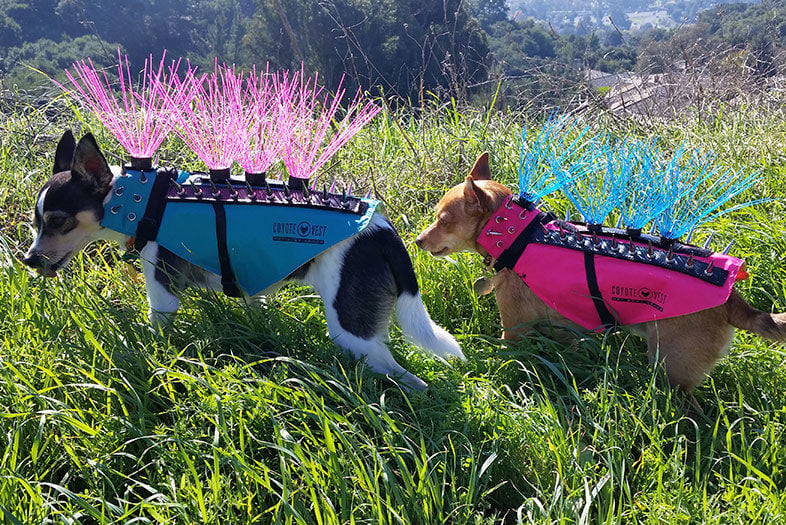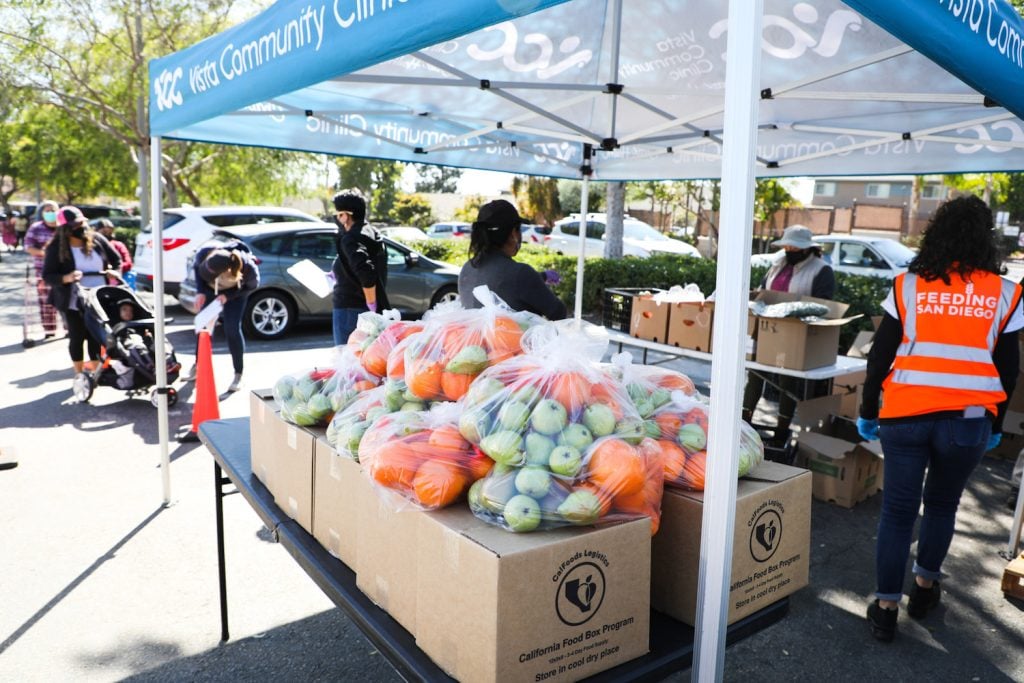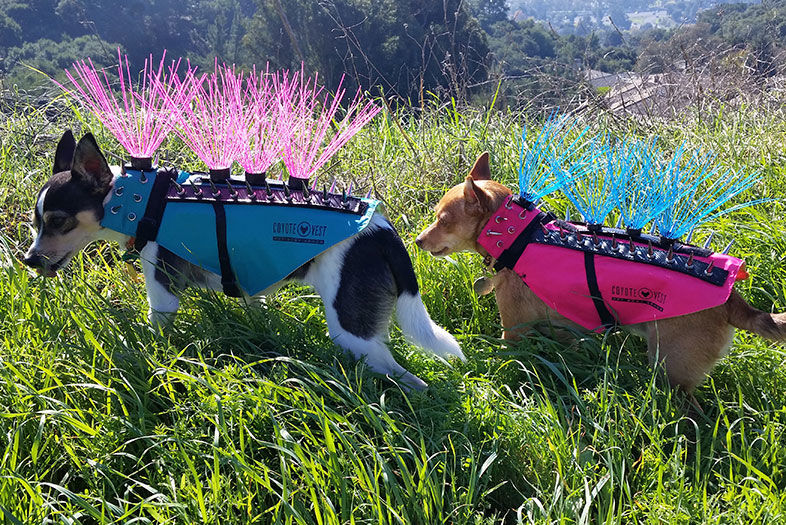Higher Temperatures
“Feel the ground with your hands. If it’s too hot for your palm, it’s too hot for their foot pads,” Ferenstein says. Brachycephalic breeds—think bulldogs and pugs—are particularly susceptible to heat, given their short or flattened breathing passages. “Once your dog shows signs [of heat stroke]—vomiting, coughing, bloodshot eyes, red gums—go to a vet immediately, because they may need IV fluid therapy.” Last January, California passed a law allowing citizens to break into a car if there’s an animal inside whose safety might be in jeopardy.
Rattlesnakes
Spring and summer bring these venomous snakes out on and near trails, particularly in the morning and at sunset. Avoidance training is a popular preventive measure. Companies like Natural Solutions, which hosts classes around the West Coast, familiarize dogs with the sight, sound, and smell of a muzzled or caged rattlesnake. Upon nearing the snake, the dog receives low-level (not harmful) stimulation via electric collar, and Pavlovian conditioning teaches them to associate a rattlesnake with a negative experience. You can also get your pooch a rattlesnake vaccine, or antivenin. “It doesn’t make them immune, but some studies are being worked on that the vaccine means less time in the hospital and a lower mortality rate,” Ferenstein says. And if they’re bit? “You don’t want to tourniquet limbs or suck out venom. Take them to a vet to administer fluids and see if there are clotting issues or signs of the venom. Baby rattlesnakes can be more dangerous. They’ll sometimes inject a lot of venom, whereas adult rattlesnakes may offer dry bites.”
Dog Parks
“Be cautious at dog parks as summer heats up. There’s a lot of activity in leash-free areas and dog attacks go up significantly,” Ferenstein says. If there’s a scuffle between two dogs, it’s often difficult to see a wound until later, when it may already be infected. If you catch a wound early enough, you might be able to get by with just antibiotics, but always consult your vet to be certain.
Foxtails
Common in the western US, these grassy plants have barbed seeds that can burrow into your pet’s ears or nose, and even pierce the skin. The result can range from irritation to serious infections that require surgery and antibiotics. “Fiesta Island has a ton of them,” Ferenstein says. “After a walk or hike, make sure to comb out their fur. If your dog comes back sneezing repetitively or has a bloody nose, those could be a sign. We probably do two to three surgeries a week removing foxtails. I’ve even seen foxtails enter through eyeballs.”
Coyotes
This canine is usually scared of medium- to large-size dogs, preying on small cats and dogs instead. But they’re no longer found only in isolated forests and mountain regions. “Coyotes are becoming increasingly common in developed areas, even in canyons next to developed communities like South Park, because they’re running out of food sources in their own habitats,” Ferenstein says. “They’re good at adapting to urban areas.” Coyotes can jump high fences, so don’t leave your pets outside unattended. Walk them on a short leash, but stay alert: Coyotes have been known to attack leashed pets as well. One solution is the CoyoteVest: made by a local, family-owned company, it’s adorned with protective spikes that also create the illusion of bigger size.
Wildfires
Make sure your animal wears identification tags and that they’re microchipped, because pets will often run away when flames start. “Post on your windows how many animals are in the house so the firemen know there are pets to look for, and keep it updated,” says Ferenstein. In the event you need to evacuate, keep an emergency kit handy, with your pet’s food, water, medications, and vaccination records, and litter for your cat. Also, keep a note of any hotels that will accept pets in case you’re displaced longer than expected. Last year, many VCA Animal Hospitals offered free pet boarding to families affected by the wildfires.

6 Summer Dangers to Avoid for Your Pets
CoyoteVest














